As Man United supporters broke into Old Trafford and caused the postponement of Sunday’s game in protest of their owners, FSG should have taken it as a warning.
There are some occasions when the events around the game are bigger than the game itself.
For Liverpool fans, there has rarely been a stranger, less interested atmosphere surrounding a trip to Old Trafford, despite its ramifications on the Champions League race.
To be played in front of an empty stadium, even if the Reds were to win they would be handing over their Premier League crown to Man City, and with both Leicester and Chelsea pulling away, chances of salvaging a top-four finish are slim.
It came as less of a disappointment, then, that the maelstrom swirling around Old Trafford led the fixture to being postponed, forcing Jurgen Klopp and his players to return to Merseyside.
Instead, the protests against the Glazer family – who have been opposed by United fans since their takeover in 2005 – should be viewed through the lens of virtue, even by those of a Liverpool persuasion.
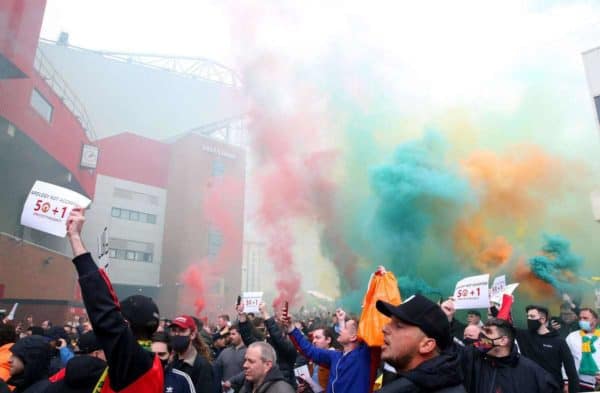
Violence is never the answer, with scenes of fans damaging property, clashing with police and swinging off goalposts while holding cans of Strongbow Dark Fruit an unfortunate sideshow that dominated the back pages.
But the message sent towards United’s owners was vital, in the aftermath of an attempted coup from six of English football’s biggest clubs.
Enough is enough. Fans want their clubs back. Football is community, not commodity. It will never be theirs, it will always be ours.
The Super League was the tip of the iceberg for United fans, worn down by the lack of engagement between themselves and the Glazer family, who have used an historic club as a lucrative cash cow.
It provided the launchpad for an uprising, though, as the scenes from Stamford Bridge and the Emirates and the strong messages sent by the players and managers themselves served as proof that fan action can lead to change.
United supporters will undoubtedly be criticised for the way in which the afternoon unfolded, with the grim scenes of skirmishes attracting the cameras more than calls of ’50+1′ and ‘Glazers out’, but they may well feel that there was little other option.
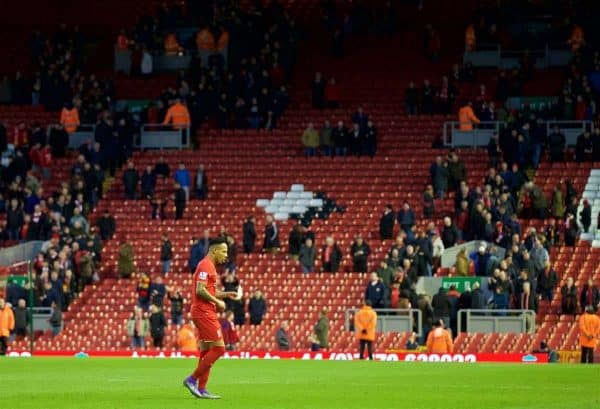
When Liverpool fans launched one of their most successful protests against FSG, upon their plan to increase ticket prices to as much as £77, their anger was shown by flocking out of Anfield, 77 minutes into 2-2 draw with Sunderland.
But with Old Trafford closed to supporters, that was not an option on Sunday, and instead, breaking through onto the pitch and prompting – for better or worse, due to safety concerns – the abandonment of the intended fixture sent a similar message.
There are many forms of protest, and the hope is that this proves successful, and not only inspires a change in the United hierarchy but also a wider change across football.
Fans need a bigger voice, and while logistically it is unlikely that a German-style 50+1 model will be introduced, the events of recent weeks should convince even the most avarice of owners that their lifeblood is in the stands.
That is where FSG come in.
It is now 12 days since John W. Henry’s apology to supporters in the hours after the Super League’s collapse, in which he stressed his intention to “rebuild trust” and “work in your club’s best interests.”
Since then, the fury towards Liverpool’s owners has subsided, with calls for the club to be sold making way for a ‘better the devil you know’ approach.
The club’s chief executive, Billy Hogan – who is widely claimed to have not been part of the plans to break away from the Champions League – has committed to meeting with supporters’ groups and was spotted at Anfield for the 1-1 draw with Newcastle.
Spirit of Shankly will air their concerns with Hogan on Tuesday, having reiterated his desire for “positive, meaningful change,” but there will still be reservations over whether this change will come to pass.
Unfortunately, like their United counterparts, Liverpool fans have been here before with FSG, and for many the Super League proposals were a bridge too far.
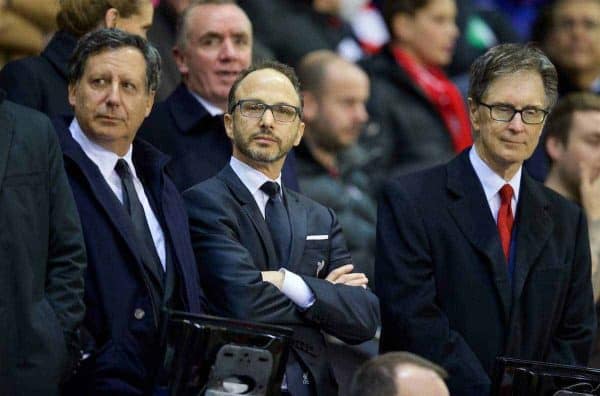
The £77 ticket plan was backtracked, and FSG were forgiven; the attempt to trademark the word ‘Liverpool’ was unsuccessful, and FSG were forgiven; the furloughing of non-playing staff was reversed, and FSG were forgiven.
But following up Project Big Picture with the Super League has left Henry, Tom Werner and Co. on thin ice.
Like United’s owners in the past, success on the pitch has papered over the cracks for FSG with many of these instances, but there is a feeling of genuine change around football now, and the protest at Old Trafford was proof.
FSG should see this as a warning that their actions have consequences, and that supporters will no longer put up with the whims of their clubs’ owners.
It should not be forgotten that a win for United on Sunday would have kept their title hopes alive, and that a rescheduled fixture will almost certainly disrupt preparations for a Europa League final they already have a foot-and-a-half in.
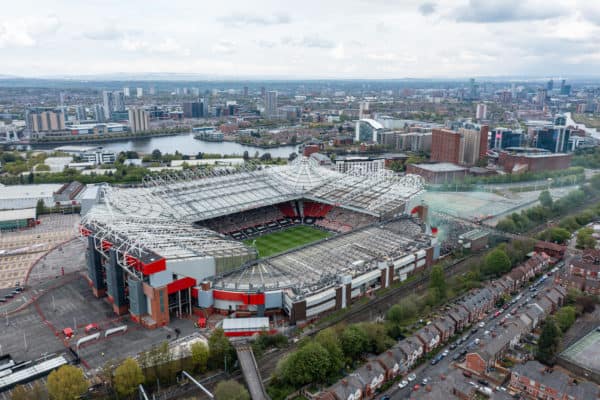
But their fans deemed it necessary to force the game to be called off, regardless of its impact on Ole Gunnar Solskjaer and his players.
The same could certainly be seen outside Anfield, with the final years of the Hicks and Gillett regime proof of that, and with fan power becoming more prominent than ever, FSG will need to make genuine amends to ensure that isn’t the case.
Engaging with supporters is the first step, but this cannot be a token gesture – as Merseyside will see right through it.
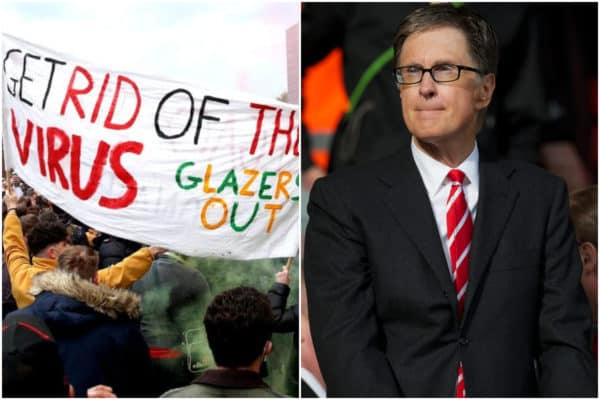

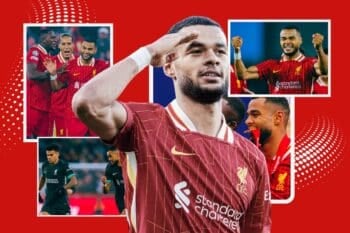


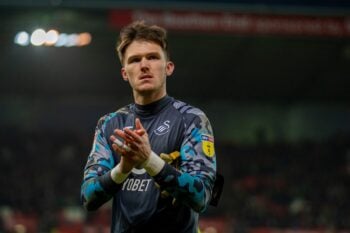


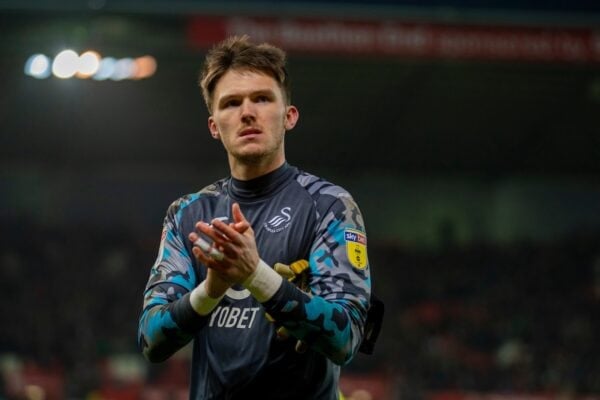

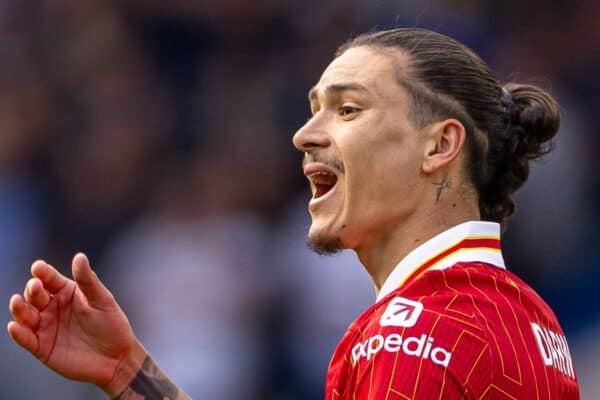
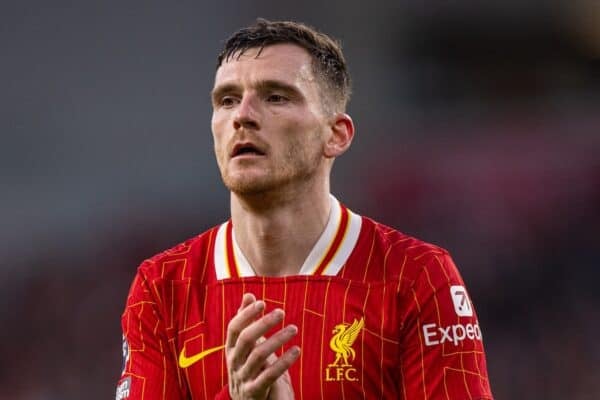
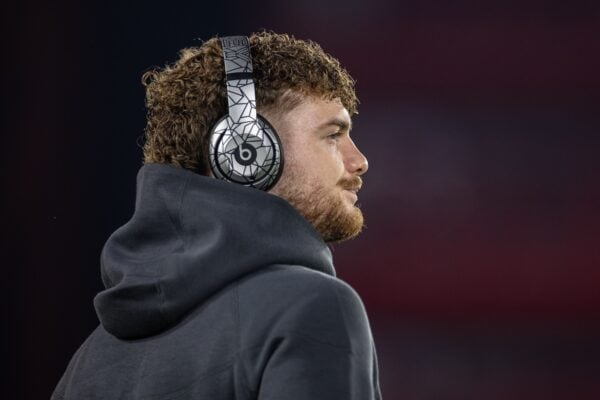
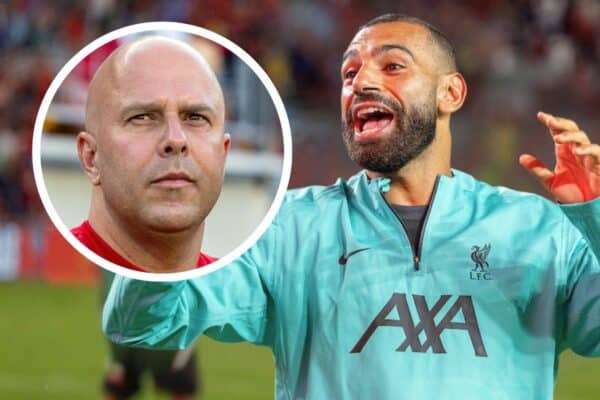


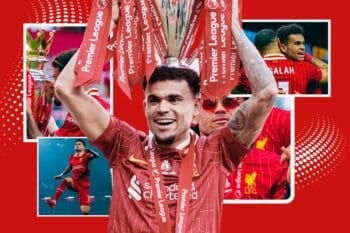
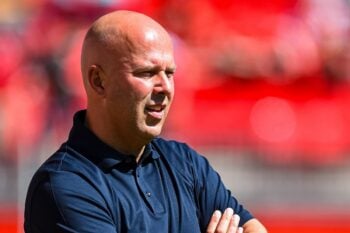
Fan Comments